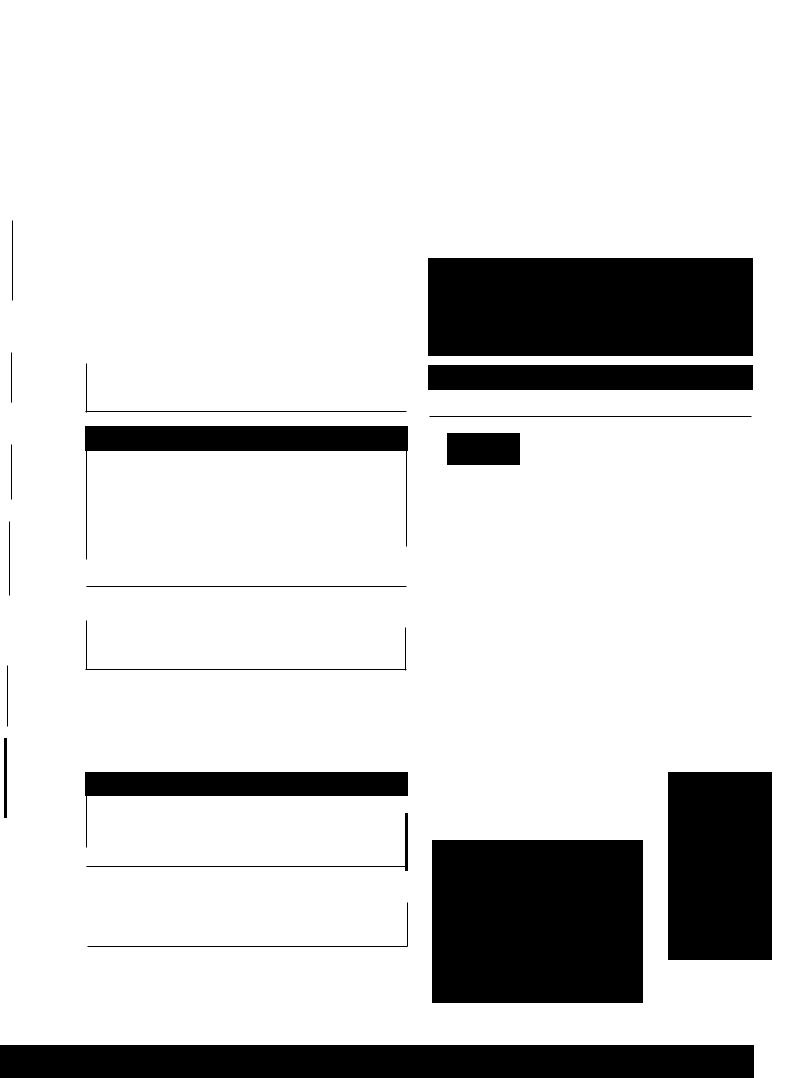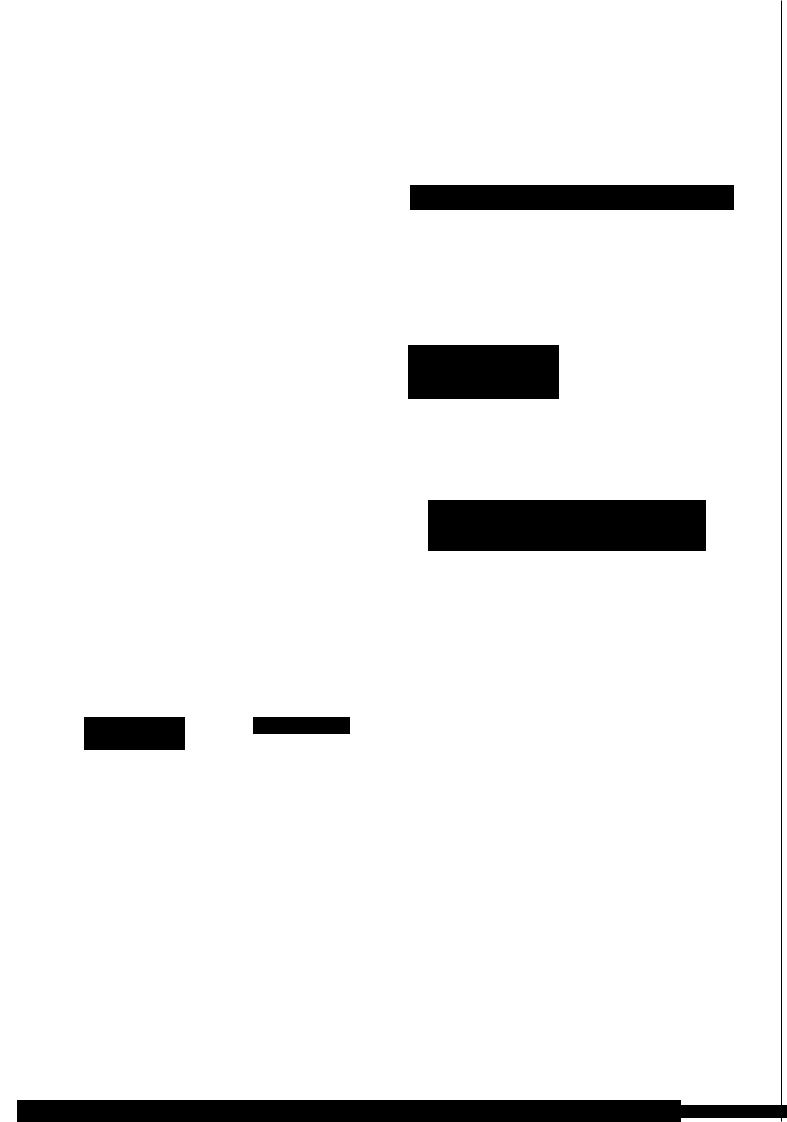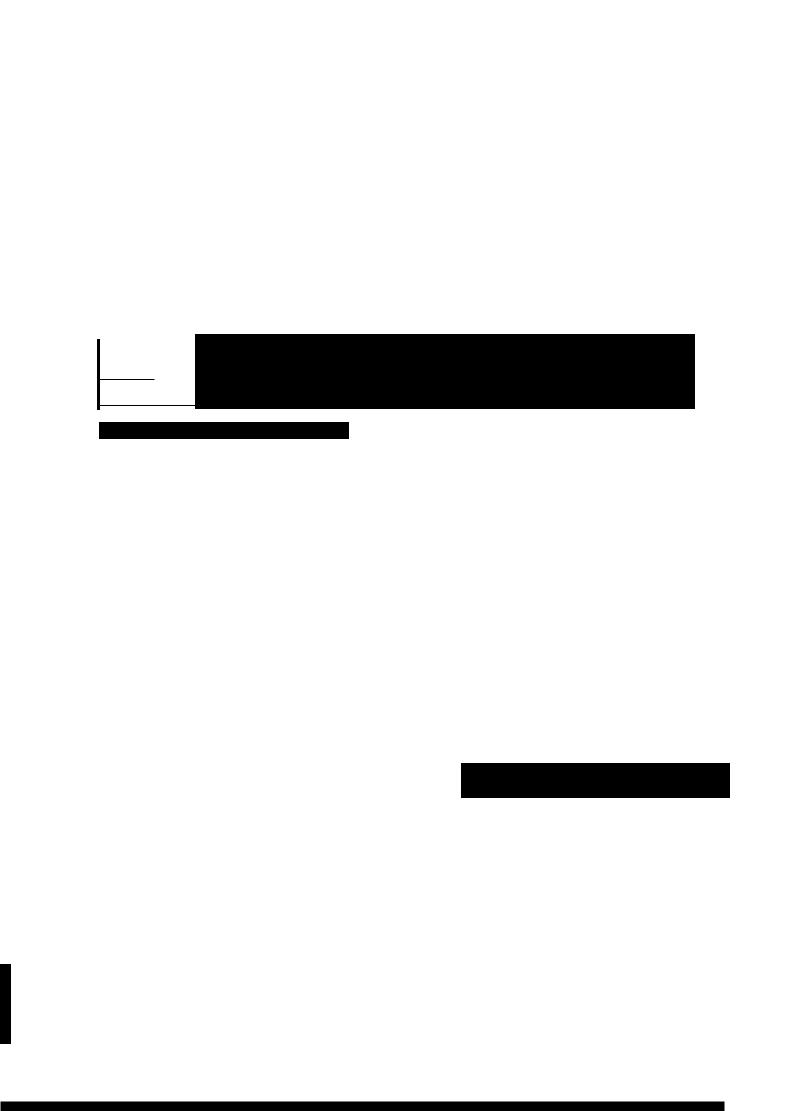
Objective KET SB
.pdf
Unit 2
Some/any
•We use some with uncountable nouns in affirmative sentences.
I've got some toothpaste.
•We use some with countable nouns in affirmative sentences.
That shop has got some new computer games for sale.
•We use some for a request.
Can I look at some trainers?
•We always use any in negative sentences.
We don't sell any newspapers.
•We usually use any in questions.
Have you got any city maps?
2  sentences with some or any.
sentences with some or any.
1 |
I'd like ...:?.o..lJ!.~.... |
tennis balls, please. |
|
||
2 |
There aren't .................... |
DVDs to borrow. |
|
||
3 |
Have you got .................... |
shops near your flat? |
|||
4 |
Can I buy .................... |
apples? |
|
|
|
5 |
I want .................... |
lemon shampoo. |
|
||
6 |
Is there .................... |
juice left? |
|
|
|
7 |
We've got .................... |
small sizes in the sale. |
|||
8 |
D0 you get |
'1 |
d |
.. |
h' ? |
emal s a |
|
vertlsmg t. mgs. |
|||
Unit 3
Present simple
We use the present simple to talk about:
•what we do every day
I have breakfast at 7.30 am.
•facts
Newsagents sell magazines. Cats eat fish.
II/You/We/They drink coffee. |
1 |
!He/She/It drinks water. |
. |
, |
i |
\"""""""".>r"'..,.",_"""".""",'""~~,.,._.~.,.,~~~_,...,"-,,,,,,,,,,,<,,,,,.,,,,,~,",_,~,",,.__'"""'""'''"'''._*_~'''''''~'''''''''''r"""''-''Ne,,,a~~~~ w=~~=">-".w~-,,,_-,w,,,,"~~~,.·,,,~<,~~,,"_~,
question
iWhat do I/you/we/they eat?
i
I What does he/she/it drink?
L,=,_~,,,,"~c~=_,,_,.,,,,,,.,_~"~..,~_",,"~,_"~~~,~~_,,,~~~~~",,,~,_~~.~'~w=~"""""".M'" "......"'"""...M .. ""..".'''','-<~w"''''''~~_..,~~_~""''_".''-'"~y,J
negative
!I/You/We/They don'teat (do not eat) potatoes.
IHe/She/lt doesn'tdrink (does not drink) water. i
{~~~'~><H-'~"~~_~~''''''''~'''''''''''_~~'''._'''~''''''.''~~'.''''''''''''''''--'-_'''"''__""~,~""~~,~,~",,,,.,,,,,,,,~~,,,,,,,,,,"_~,,,,,..=.--..~~..,",,,,,_~~,,,=;J
3 Complete |
sentences |
verb |
|
brackets. |
|
|
|
1 |
I ...pr.~.... |
(prefer) coffee to tea. |
|
2 |
........................ |
Pete really ........................ |
(hate) carrots? |
3 |
Both Katie and Jack ........................ |
(love) |
|
|
chocolate. |
|
|
4 |
My brother ................................ |
(not eat) vegetables. |
|
5 |
Rachel ................................ |
(go) to restaurants three |
|
|
times a week. |
|
|
6 |
........................ |
you usually ........................ |
(go) to a |
|
party on New Year's Eve? |
||
7 |
Supermarkets ........................ |
(not sell) |
|
|
computers. |
|
|
136 GRAMMAR FOLDER

Unit 4
Past simple
We use the past simple to talk about:
•things that happened in the past
He travelled around the world.
•past states
It was a longjourney. He liked China.
The verb be
a'fffirmative You/We/They were right. IIHe/She/lt was right.
Irregular verbs, e.g. meet
Many verbs are irregular in the past tense, for exampIe meet - met. See the list on page 151.
afifirmative |
. . |
I/You/He/She/ltlWe/They met the king. |
|
|
|
Did lIyou/he/she/it/we/they meet the king? Yes, I/you/he/she/itlwe/they did.
No, I/you/he/she/it/we/they didn't(did not).
IIYou/He/She/ftlWe/They didn'tmeet the king.
Was I/he/she/it right?
Were you/we/they right?
Yes, I/he/she/it was.
Yes, you/we/they were.
No, I/he/she/it wasn't(was not).
No, you/we/they weren't(were not).
aegative
I/He/She/lt wasa't(was not) right.
You/We/They weren't(were not) right.
Regular verbs, e.g. arrive
aftfirmative
II/You/He/She/lt/We/They arrived home.
\.,~~~,_~~_.~"_",__._",,,,.-,.,._,,,,,-_...___~~,,,,~_~~-=_.~_,,._,..._",-~_~,,,,*=~_~~_~,,-..J
Did I/you/he/she/it/we/they arrive home?
Yes, I/you/he/she/itlwe/they did.
No, I/you/he/she/it/we/they dida't(did aot).
negative
I/you/he/she/itlwe/they didn'tarrive (did not arrive) home.
4 "j'U<".""",,,, the sentences using |
verb |
the simple.
1How long ",AM.",Y.0!:""~~,,,,, (you stay) in London?
2""""",,""""",,",,"'"'''''''''''''' (you enjoy) the boat trip?
3The coach "'"'',,''''''''''''''''''''''',,'''',,''''''' (not arrive) back at school on time.
4My mother """'"''"""""""",""""""""", (make) me some sandwiches to take on the trip.
SVve """",.,.""""",,,,",,,,''''''',,'''''' (travel) to Rome by plane.
6What """""""",,"",,""""""""""'" (Lyn see) when she
""",,,,,,,,,,,,,,,,,,,,,,,,,,,,,,,,,,,,,,,,, (go) to New York?
7He """"""""""""""""" "'"''"", (not speak) Spanish at all on his holiday.
SWhere ".""",,"""""",,"",,,,""""",," (she buy) that souvenir?
_--------------------............. |
- |
|
... |
itiiJi& |
|

Unit 5
Conjunctions
and but or because
We use conjunctions to join two clauses or sentences to make one longer sentence.
Sentence A Polar bears weigh from 350 to 650 kg. AND
Sentence B Polar bears are two and a half metres to three metres long.
Polar bears weigh from 350 to 650 kg and are two and a half to three metres long.
•We use and when we want to add one fact or idea to another.
I saw a polar bear and there were two cubs with her.
•We use but when there is a contrast between the two facts or ideas.
I saw a polar bear but he was asleep.
•We use or when there is a choice or an alternative fact or idea.
You can go to the zoo or stay at home.
• We use because to say why things happen.
I gave the penguin some fish because it was hungry.
Because the penguin was hungry, I gave it some fish.
5 |
sentences |
oror |
|
1 Dogs like going for long walks |
also |
playing with sticks.
2 My cat is getting old, ........................ she still
chases birds. |
|
3 I took my dog to the vet ........................ |
she was |
ill. |
|
4 The elephants I saw in India worked in the
|
early morning ........................ |
slept in the |
|
afternoon. |
|
S |
........................ I live in a flat, I can't have a pet. |
|
6Would you like a cat as a pet ........................
would you prefer a dog?
Unit 6
Comparative and superlative adjectives
short words |
|
|
|
|
tall |
taller |
the tallest |
||
big |
bigger |
the biggest |
||
easy |
easier |
the easiest |
||
long words |
|
|
|
|
expensive |
more/less |
the most/least |
||
|
expensive |
expensive |
||
|
better |
the best |
||
|
|
|
|
the worst |
|
|
|
|
|
Theme parks in the USA are bigger than the ones in the UK.
My ticket was more expensive this year than last. I think Disneyland is the best theme park.
6
1 |
The park was .............................................................. |
. |
|
(busy) on Saturday than on Sunday. |
|
2 It's ............................................................... |
(expensive) for |
|
|
children to get into the park than it is for |
|
|
adults. |
|
3 The ride I went on was |
|
|
|
............................................................... |
(tall) in the park. |
4 |
My uncle is ............................................................... |
(rich) |
|
than I am so he paid for my trip to |
|
|
Disneyland Paris. |
|
5 |
It was ............................................................... |
(sunny) on |
|
Tuesday than it was on Monday. |
|
6 The ............................................................... |
(popular) ride |
|
|
was Inferno. |
|
7 The ride was ............................................................... |
(fast) |
|
|
in the park. |
|
8 The theme park was |
|
|
|
............................................................... |
(expensive) than |
|
the one I usually go to. |
|
9 |
Some theme parks are |
|
............................................................... (good) than others. 10 The hotel Tstayed in was
............................................................... (bad) in the area.
138 GRAMMAR FOLDER

Unit 7
Simple and continuous tenses
•We use the present continuous to talk about something temporary, that is true now but not in general. Compare these sentences:
I'm wearing a skirt today because I've got an interview.
Tusually wear jeans.
•We can use the past continuous to talk about a temporary situation in the past. Compare this with the past simple, which we use for a completed action:
Most people were wearing Roma shirts at last week's match.
Roma won last week's match 2-0.
•We also use the past continuous to talk about something which continued before or after another action.
I was shopping for shoes when my mobile phone rang.
7Put the verbs in brackets in the correct past tense.
1 Helena .......Nq.§... f!J.r!k.0g...tM? |
...... (look at) |
|
jackets when I .................... |
m~ |
.................. (meet) her. |
2 I ....................................................... |
(tryon) my new |
|
dress when the zip |
........................................... |
(break) . |
3 John ...................................................... |
|
(queue) to pay |
when he ....................................................... |
|
(remember) |
his wallet was at home. |
|
|
4 Martina ....................................................... |
|
(choose) her |
meal when the fire alarm |
|
|
....................................................... |
(go off). |
|
5 Maria ............................................... |
(study) in the garden |
|
when it ............................................... |
(begin) to rain. |
|
6 When my friend ............................................... |
|
(phone), |
T............................................... |
(have) a shower, so she |
|
............................................... |
(leave) me a message. |
|
Unit 8
Modal verbs 1
must
•In the present, we use must to talk about obligation.
You must finish your homework before you go out.
•In the past, we cannot use must. Instead, we use had to.
I had to queue for twenty minutes at the cinema.
may
• We use may to talk about possibility.
Imay corne with you tonight. can and could
•In the present, we use can to talk about ability.
Ican ride a bike. (= I know how to ride a bike.)
Ican't drive. (= I don't know how to drive.)
•In the past tense, we use could and couldn't. Sam could play the guitar before he was 12. He couldn't read music when he was at school.
8Complete the sentences using each modal verb once only.
l can can't |
couldn't |
had to may must I |
|
1 |
Giacomo didn't know how to find the |
||
|
cmema. |
<:£u..':4.Yl.~~ |
|
|
Giacomo .... |
find the cinema. |
|
2 |
Perhaps I'll come to the theatre tonight. |
||
|
I ................................ |
come to the theatre tonight. |
|
3 |
Please wear a white shirt and black trousers |
||
|
at tonight's concert. |
|
|
|
You ................................ |
wear a white shirt and |
|
|
black trousers at tonight's concert. |
||
4 |
Sorry, but I'm busy next Friday. |
||
|
I ................................ |
go out with you next Friday. |
|
S The front door of the club was locked. |
|||
|
We ................................ |
use the back door of the |
|
|
club. |
|
|
6 |
I know how to play the drums. |
||
|
I ................................ |
play the drums. |
|
GRAMMAR I?(HDER 1B9

Unit 9
The future with going to
•We use to be going to to talk about plans and arrangements which are definite.
affirma~ive
am
He/She/It |
is |
going to swim every day. |
You/We/They |
are |
|
I
! Is he/she/it going to walk up the hill? i
! Are you/we/they
L"_,,",,,,_,_,,,,,,",_~,,,,,_,,,,,,,,,,,_,,,,,,,,,,,_,,,,,,,,,_,,,,,,,,,_,,'''''-'''''''''-''-''''''''''''''''''''''''''''''",,,,,,,-,"",,,,,,,
negative
IHe/she/it |
'm not |
|
isn't |
going to sleep in a tent. |
|
1 |
aren't |
. |
i We/you/they |
:L~"~,~~.",.~,,,,,",,~~,,,,,,_,~,,,,~,,,,,~=___~_,,~~__,~~~~"~,,"~U,,_,"~,~..'''"'~>"''~."~"'''.«'"~.~.. ,_.<",,,,"~.,,,,",,""_,~"~,,~,,,~=.~"~.c.....,,,,,~~,_"" '"~<~~J
question |
|
!Aren't I/we/you/they |
going to book a room? |
1 |
|
1 Isn't he/she |
|
1Note: Am 1not becomes Aren't I.
i__""____,."'..,~"_"~"~..""~~,~~'""'..."'~,_._.__~,.,,.,."".,.'''".~_'''''"_~.....,"""""'"..,._,,="'"'.,~~_"'''_''''''~'"''''''''',,.,....,..,~,,~,.''''•.---.~,'''_'~'''.9''"-,-.*.,,-~j
I'm going to stay in a traditional house when I'm in Japan.
He isn't going to spend a lot of money on an expensive hotel.
Sam's going to take one small suitcase with him when he goes on holiday next week.
The future with will
•We use will to give information about the future or guess what will happen in the future.
affirmative and negative
I lIyou/he/she/itiwe/they will / will not (won't) travel.l
L."",,_,~~,_,__~,,"~~.~"_~_~,~~~_.~.»,_~,~~~~=,<"~,".,.~,~~<~"~_~'~""~.~_'''~"~~''~'~N~''_~.'=M,<"~,"~~._J
muesticm and negative
I Will/won't I/you/he/she/itlwe/they travel?
, _ . ,.....~"'~-""".'"".....""".~~~~'~'""'m.c~~m~"_~~."'~.~"'~.,-,<".• __~~_w ~,.c,__~>~~.~.<o._~~~=","~·_~o"'""""_~,<,~..,~u~~.~. ,~="""~~,~~"~~-..J
One day people will live on Mars.
•We often use will with sentences beginning I think ... and with adverbs like certainly (100%), definitely (100()lo), probably (about 70%) and
possibly (about 40%).
I think I will/I'll get a holiday job next year. I will/I'll probably work in a hotel.
I don't think I'll earn a lot of money. I probably won't spend a lot of money.
9Use be going to or will in these sentences.
1I """,~",g0.0.g""tp"",,,, go to Sicily for my holidays next month - I already have my ticket.
2Congratulations! I hear you and Theresa
""","""""""""""",,",,.,,,,"'" get married.
3What do you think you """"",,"",,,,"",,,,",,",,",,""'"
study when you go to university?
4I """"""""""""""""""""""'" have a party on Saturday - do you want to come?
5The Lunar Hotel """"""'"''''''''''''''''''''''''''''''''
probably be the first hotel in space.
6Claire thinks she """"""""""",,"",,.,,"",",,""
definitely go abroad next year.
7Maria """'"'''''''''''''''''''''''''''''''''''''' take her driving test next week and she's very nervous.
8I don't think people """"""""""""""""""",,,,,,,,,
enjoy living on the moon very much.
9I think air travel """"""""""""""""",,",,.,,"" become much cheaper in the future.
10 Maria """'"'''''''''''''''''''''''''''''''''''''' buy a new camera to take with her on holiday.
'40 G RAM MAR FO LO E R

Unit 10
The passive
amlis/are (not) |
+ past participle |
|
|
|
painted |
|
|
||
|
|
|
||
|
seen |
|
|
|
was/were (not) |
||||
built |
|
|
||
|
made |
|
|
|
|
|
|||
|
|
|
|
The sentence I painted my bedroom black is active. The sentence My bedroom was painted black is passIve.
•We often use by with the passive to tell us who did the action.
My bedroom was painted by my father.
•The past participle of regular verbs ends in -ec~ like the past tense.
•See page 151 for a list of past participles of irregular verbs.
10 Make sentences the passive using A, Band C.
EXAMPLE: The song |
(Imagine' |
was sIAng by |
|
|
Jonn Lennon. |
|
|
|
A |
B |
C |
1 The song 'Imagine' stop |
by J. K. Rowling. |
||
2 |
Spanish |
gIve |
in sweet shops. |
3 The computer |
wm |
to swim by my |
|
|
|
|
father. |
4 The Harry Potter |
smg |
by Brazil in 2002. |
|
|
books |
|
|
5 |
Presents |
sell |
in Peru. |
6 Spaghetti |
teach |
by John Lennon. |
|
7 |
I |
invent |
on birthdays. |
8 |
Chocolate |
eat |
by Charles |
|
|
|
Babbage. |
9 |
The World Cup |
speak |
all over the |
|
|
|
world. |
10 The car |
write |
by the police. |
|
Unit 11
Verbs in the -ing form
•The - ing form is added to the infinitive of the verb:
play + -ing = playing I enjoy playing tennis.
•Different groups of verbs are followed by a verb in the -ing form:
- verbs of liking and disl1king: enjoy, like;t, love*, hate, don't mind, feel like
r don't mind getting to the match early. 1feel like taking it easy for an hour.
- verbs of doing: keep, spend time
He kept asking questions. We spent the day fishing.
- verbs of starting and stopping: begin*, start*, finish, stop
They stopped talking immediately.
* these verbs can also take an infinitive with
no change of meaning:
[ like to listen to the football scores at 5 0'clock. The team starts to train harder two days before a match.
11 Complete the sentences with the -ing form of the verb in brackets.
1 |
I don't mind ......P?'!!.0.g...... |
(come) with you |
||
|
to basketball training. |
|
|
|
2 |
I feel like ............................... |
(swim) in the river - |
||
|
shall we go now? |
|
|
|
3 Harry likes ............................... |
(choose) the team |
|||
|
himself. |
|
|
|
4 |
Do you enjoy ............................... |
|
|
(use) the gym |
|
equipment? |
|
|
|
5 |
Kate can't stand ............................... |
|
|
(sit) and |
|
............................... (watch) - |
she prefers to play in |
||
|
every match. |
|
|
|
6 |
I hope Jenny doesn't mind |
............................... (get) |
||
|
wet - it's going to rain! |
|
|
|
7 |
How about ............................... |
|
(run) in the park |
|
|
before dinner? |
|
|
|
8 |
Most racing drivers hate |
............................... |
(drive) |
|
|
in heavy rain. |
|
|
|

Unit 12
Pronouns
III There are different forms of personal pronouns:
subject |
object |
reflexive |
|
pronouns |
pronouns |
pronouns |
|
! I |
me |
myself |
|
: you |
you |
yourself |
|
i he, she, it |
him, her, it |
himself, herself, itself |
|
|
|||
we |
us |
ourselves |
|
you |
you |
yourselves |
|
they |
them |
themselves |
|
|
|
|
|
|
|
|
|
III These are also pronouns:
something |
somebody / someone |
anything |
anybody / anyone |
everything |
|
everybody / everyone |
|
nothing |
nobody / no one |
|
|
•Remember that you must use a positive verb with nothing, nobody and no one.
I've got nothing to read on the train.
(= I haven't got anything to read on the train.)
IIIThe relative pronouns who (people) and which (things) give more information in a sentence.
Hannah, who is Robin's sister, is in hospital. There's going to be a special birthday lunch, which is booked for I. 15.
12 Complete the second sentences using suitable pronouns from those above.
1 Jenny came to the party alone.
She didn't come with ..........JMJ!f,fl.n.f(.......... .
2David knows the whole truth. I've told him ........................................ .
3There's a phone message for you.
|
........................................ |
from work called you. |
4 |
I'm sure I can help. |
|
|
There's ........................................ |
I can do. |
5 |
All my family came to the party. |
|
|
........................................ |
was there. |
6 |
The bus was empty. |
|
|
There was ........................................ |
on it. |
Unit 13
Adverbs of degree: enough and too adjective + enough
I don't want to go swimming. It isn't hot enough. too + adjective
Can you close the window? It's too cold in here.
•We can also use to + infinitive after too and enough with adjectives or adverbs.
It's hot enough to fry an egg. ft's too far to walk.
13 Complete the sentences with too or enough and the adjective in brackets.
1 It's |
........ tl?o . .... 4 .. a.!'g~O'0.. s . ........ |
(dangerous) to go |
out side if there's a tornado. |
||
2 It's |
..................................................... |
(dry) here to grow |
tomatoes. |
|
|
3 The ice isn't ....................................................... |
(thick) to |
|
go skating. |
|
|
4 The sun isn't ....................................................... |
(hot) to |
|
heat the water in the pool. |
||
5 The .......................................................fog is |
(thick) to |
|
see the trees. |
|
|
6 The .......................................................wind was |
(strong) |
|
to go sailing. |
|
|
•
•
• |
• |
|
• |
• |
••
•

)
.
Unit 14
Position of adjectives
•'Sometimes we use two or more adjectives together. We put the 'opinion' adjective(s) first, and the 'fact' adjective(s) after.
The story is about a nice young man.
• If there is more than one fact adjective, there are rules about the order they go in.
1 |
lZ |
$ ~. |
Ii!) |
t I ~ |
}I"'~ |
|
Wh:at's it' IiKe~ I f71QW |
~il:aJ fitlQW Cl:fEfr |
I What c()I()UJf~ i |
~elie'~I rtam? I .I~Iii~l~~ |
:"~' ~';.~f |
||
Qfllnicn |
SJf:le |
Qle |
I |
n~~~nfi;li. |
. .'.:.~~~i:~ |
|
great
correct
1 a old building (lovely)
(.t
2a wooden reading desk (large)
3a popular American magazine (music)
4an interesting story (adventure)
5a friendly detective (young)
6my French cornie book (favourite)
Unit 15
Present perfect
•The present perfect is formed with: have eve)! has ('s) + past participle
I have worked as a waiter.
I've seen an interesting job advert.
The manager has sent me an application form.
•Be careful with the past participle forms of irregular verbs! See the table on page 151.
•We use the present perfect
-for something that started in the past but is still true:
I've broken my arm. (= it's still broken)
-for something that happened recently (but we don't know when):
Alan's left for work.
•The words for and since show how long something has been true:
I've worked here for four months. I've worked here since August.
•The word just shows that something happened only a short time ago:
The bus has just gone.
15
1 Tyler began working as a chef last week.
 IAlm'1t:'lJlIO as (.t
IAlm'1t:'lJlIO as (.t
2Joan took the customer's order five minutes ago.
3Giorgio recently became a doctor.
4Someone left a message for you a couple of minutes ago.
5I saw your mother crossing the street a few seconds ago.
6I spoke to the mechanic on the phone a few minutes ago.
GRA.M MA.R FOLDER 1~B
D |
az |

Unit 16
Modal verbs 2
should
'" We can use should (and shouldn't) to give advice.
You should walk to school - it's good exercise. You shouldn't come by car - it's better to walk.
must
'" We use must to talk about obligation.
You must buy a ticket before you get on the bus.
'" We use mustn't to talk about things that aren't allowed.
You mustn't get on the bus without a ticket. need to
'" We use need to to talk about something necessary.
You need to check the train times on Saturdays. don't have to, needn't
'" We use don't have to and needn't when something is not necessary (when there is no obligation).
You don't have to show your ticket to the driver. You needn't wait for me on the platform. I'll see you on the train.
16 Find the pairs of sentences that have the same meaning.
1You don't have to book a seat on the train. 6
2You mustn't have a cigarette on the train.
3You should take something to read on the train.
4 You need to arrive early for the train. S Smoking is forbidden on the train.
6You needn't reserve a place on the train. 1
7You shouldn't arrive just before the train leaves.
8Why not bring a book for the train?
Unit 17
Infinitive of purpose
'" We often use the infinitive (to -+- verb) to say why we do things.
Liz needed a new bed.
She went to a large furniture store.
Liz went to a large furniture store to buy a new bed.
17 Make one sentence using a phrase from A and a phrase from B.
EXAMPLE: I fNenf:; |
to fhe bus stop 1::0 ca1ch a. |
||
|
bus to |
tofNn. |
|
|
A |
|
B |
1 I went to the bus stop |
to pass the exam. |
||
2 |
I turned on the radio |
to buy a CD. |
|
3 |
I went to the museum |
to take to the party. |
|
4 |
I borrowed some |
to see an exhibition. |
|
|
money |
|
to listen to the news. |
5 |
I worked hard |
|
to catch a bus to |
6 1 bought a cake |
|
town. |
|
'44 GRAMMAR FOLDER
